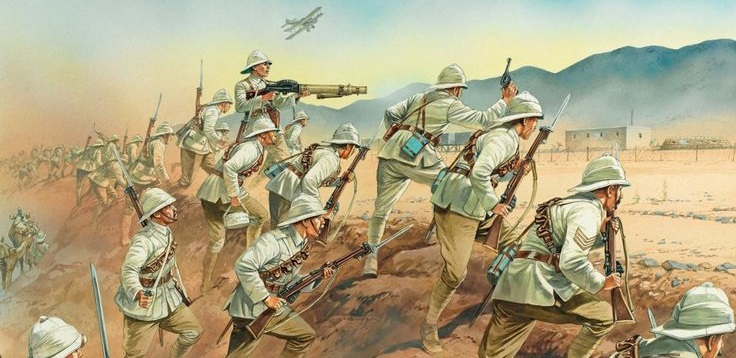- Posted on : November 10, 2012
- Posted by : Tom Fletcher
Following Remembrance services in Saida and Tripoli on Thursday, we have just left the third, in the beautifully kept Commonwealth War Graves Cemetery in Beirut. The torrential rain cleared, and we honoured those who fell, driving Vichy from Lebanon in 1941.
We share these poignant moments with former allies and former foes. The allied contingent included the Australians, Free French, Indians, and Cypriots. Dayan (who lost his eye in the campaign), Rabin, and children’s author Roald Dahl were involved.
Most importantly, we are joined each year by the Palestinian veterans who were at our side in the conflict. Now proud ex-soldiers in their 80s and 90s, they are a dignified group, with weary bodies but twinkling eyes. Their numbers have dwindled to fewer than 30, and I was sad to see several faces missing from last year. They all stand for the Last Post.
For these soldiers, victory in 1945 did not bring freedom. They fled their homes in Palestine in 1948, and have lived since in refugee camps in Lebanon. They have seen waves of civil war, invasion, and the radicalisation or departure of their families.
Far from the comfortable conference rooms where Middle East policy is debated, and where diplomats mull this month Palestine’s bid for UN Observer status, they shared their stories with us today.
Hajj Ibrahim recalls serving in the First Battalion in Haifa until just before the end of the British mandate in 1948. He escaped with his brothers to Syria, stayed for a year and came to Lebanon in 1949 looking for work and shelter. His mother tried to persuade them to return, but they feared for their lives. When he tried smuggling himself across the southern Lebanese border to see her, he was imprisoned for forty days, during which time she died. He spent the rest of his life moving his family from camp to squalid camp. He remembers his British comrades by name, and talks of ‘left, right, left, right’. But he will not speak about the years of the civil war or the Israeli invasion of Lebanon. Four of his children have died.
Hajj Ibrahim told us: “In the past, Jews and Palestinians lived peacefully together. Things never got better for us after the war. I kept hoping for the best for my family, but this day has never come. Every day I wish more and more that I was home, that I could be buried with my ancestors. On Remembrance Day, I hope to God that peace prevails, and that people can one day return to their homeland. The key of hope is somewhere out there, for the whole world and not just Palestine. To be able to live in peace and harmony as we have in the past is not just a dream.’
This is not the place to comment on the fraught questions of responsibility, justice, rights, or obligation. Telling this story, even without comment, will – on previous experience – draw angry comment from those on both sides of the Israel/Palestine debate. But I simply want to acknowledge the quiet dignity amid conflict of one Palestinian life, of Hajj Ibrahim of the First British Palestine Battalion. As a new US Presidential term begins, I hope that his ‘key of hope’ can be found in a meaningful peace process, and some measure of justice, while he is still with us to see it.

